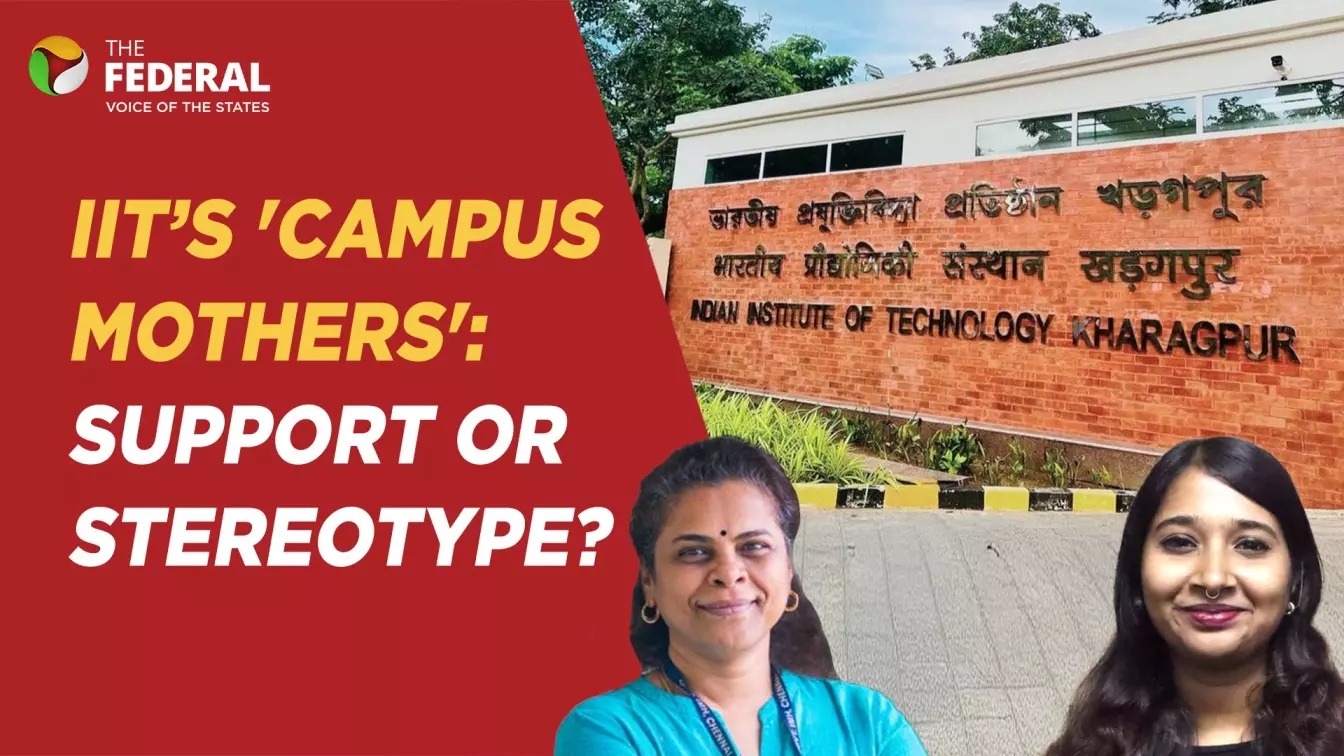
Dr Poorna Chandrika speaks to The Federal on why institutions must rethink how they offer care to students.
'Campus Mothers' at IIT Kharagpur: Mental health fix or flawed move?
Dr Poorna Chandrika, psychiatrist at the Institute of Mental Health, feels the name and gendered framing are problematic; she says professionals should lead the way

IIT Kharagpur's new initiative to train female staffers as emotional support figures for students has come under fire for reinforcing gender stereotypes and ignoring professional mental health frameworks. Dr Poorna Chandrika, psychiatrist at the Institute of Mental Health, speaks to The Federal on why institutions must rethink how they offer care to students.
What was your first reaction when you heard about IIT Kharagpur's 'campus mothers' initiative?
At first glance, the idea seems warm and homely. But when you dig deeper, it raises concerns. A support system is essential in every campus. Students in crisis need someone available 24/7. But the name and gendered framing of this initiative are problematic. Should emotional support be linked only to 'mothers'? Why not a gender-neutral term?
Also Read: Student suicide growth rate in India higher than overall trend, population growth: Report
Why do elite institutions like IIT need strong counselling systems?
The pressures at IITs are unique. Getting in itself is an exhausting process. Students often arrive after being toppers in their schools or districts. Suddenly, they're among hundreds of toppers, and someone has to be last in class — that can be crushing.
The syllabus is tough, and there's barely time to adapt before exams begin. Many students live away from home for the first time, struggle to make friends, or find their roommates incompatible. Loneliness, academic stress, and emotional isolation can quickly spiral. Some even turn to substances for solace. These environments need robust, round-the-clock mental health support.
Is it ethical or effective for untrained individuals to provide emotional counselling to such vulnerable students?
In underserved areas like Chhattisgarh, community health workers are trained to identify signs of depression or psychosis because psychiatrists are scarce. But in states like Tamil Nadu or campuses like IIT, we have better professional availability.
We can train psychology graduates to offer primary support, but they must be supervised for six months to a year. Handling mental health needs sensitivity. A careless word can do immense harm. It's vital that trained professionals lead this.
Also Read: It's ok to not be ok: Wipro's Rishad Premji makes strong pitch for mental health
The director of IIT Kharagpur justified the initiative by saying many female staff are mothers, and hence innately understand students' struggles. How do you view that rationale?
That argument is riddled with stereotypes. It assumes all women are mothers, all mothers are nurturing, and that motherhood equips one to be a therapist. Not every woman is married or a parent. Some may face their own mental health challenges or family issues.
Emotional support should not be based on outdated gender roles. Caregiving is not the exclusive domain of women.
Students may not always feel safe talking to professors. What alternatives work better?
Absolutely. If a student has an issue with the faculty, expecting them to seek help from that same system is unfair. In Tamil Nadu, we run a programme called Manam where each class elects a student ambassador. Students are more likely to confide in peers. These ambassadors can escalate issues to trained counsellors.
We also have 24x7 helplines (like 1004 and 14416) that proactively reach out to students who fail exams. Every district in Tamil Nadu has mental health teams that visit schools, colleges, jails, and health centres. Creating safe spaces and multiple access points is key.
Does this trend of bypassing mental health professionals demoralise young therapists and psychiatrists?
It does. Tamil Nadu produces 200-280 psychiatrists, and many struggle to find employment. Some end up competing with psychologists for roles. There's already a stigma around consulting psychiatrists — families prefer 'counselling' to 'therapy.'
Institutions like the IIT should lead by example and provide opportunities for trained professionals. Undervaluing this expertise undermines the entire field.
Also Read: Are schools taking care of the mental health of students?
Supporters argue that students often hesitate to approach formal counsellors. What’s the solution?
The answer lies in awareness. Media plays a powerful role in normalising therapy. Western cultures openly say "I have a therapist"; here, that’s still rare.
The more we talk about it — during exam seasons, on Mental Health Day, through real stories — the more we chip away at the stigma. Let’s also not overload the faculty with emotional burdens they aren’t equipped for. And let's stop assuming that men can’t be good listeners or caregivers.
Can the IITs launch such initiatives independently, or should there be government oversight?
If it’s a solid, well-structured programme, sure. But when there’s pushback, it needs review. The 'campus mothers' model seems to lack clarity, and I anticipate that even the faculty will resist this extra emotional labour.
Without proper resources, support systems, and training, such programmes will falter. The idea needs refinement, not rejection — but let professionals lead the way.
Also Read: IIT-Kharagpur: Student found hanging in hostel room
What models have worked well in Tamil Nadu?
Apart from Manam, we have helplines that call students who’ve failed major exams and track their well-being until they pass. Our district mental health teams regularly engage with institutions and communities.
It’s all about conversation. The more we talk, the better we get at spotting distress and stepping in early.
(The content above has been generated using a fine-tuned AI model. To ensure accuracy, quality, and editorial integrity, we employ a Human-In-The-Loop (HITL) process. While AI assists in creating the initial draft, our experienced editorial team carefully reviews, edits, and refines the content before publication. At The Federal, we combine the efficiency of AI with the expertise of human editors to deliver reliable and insightful journalism.)

